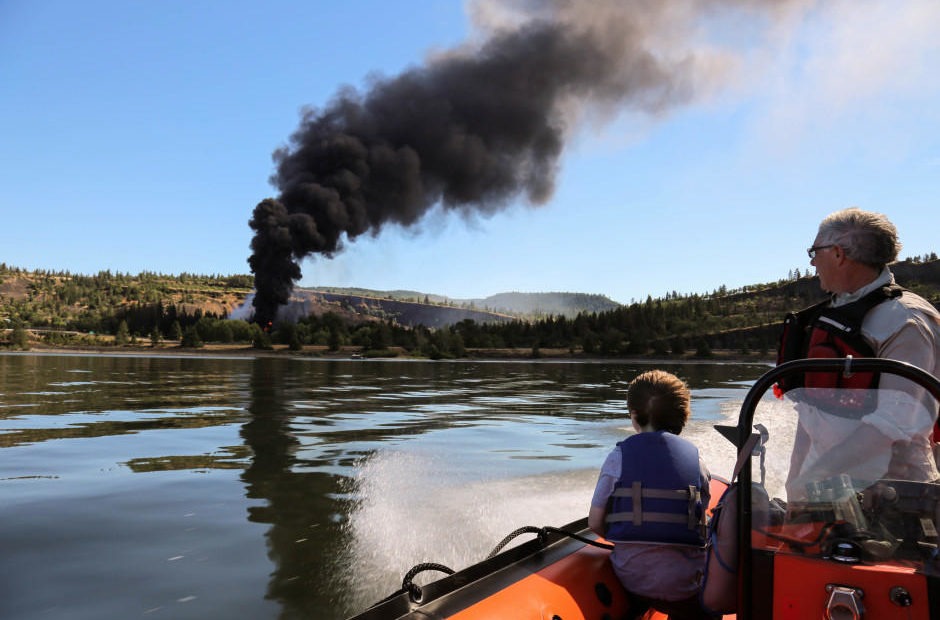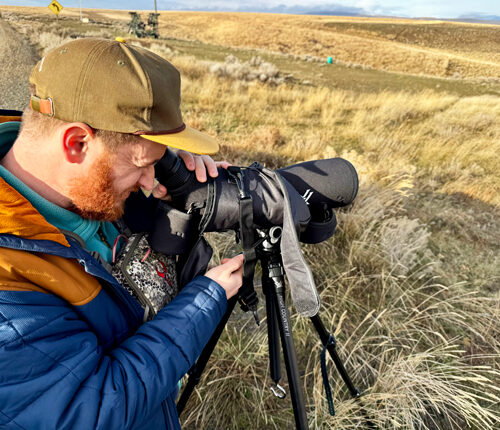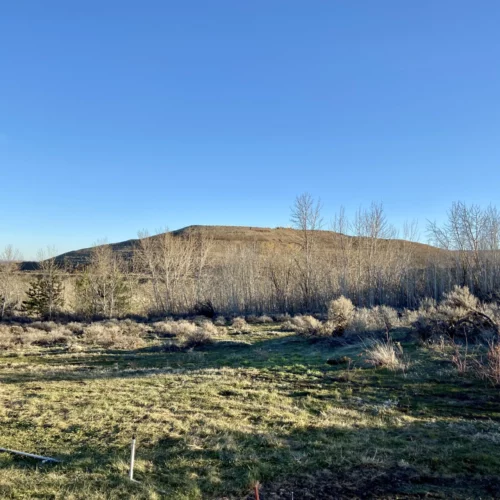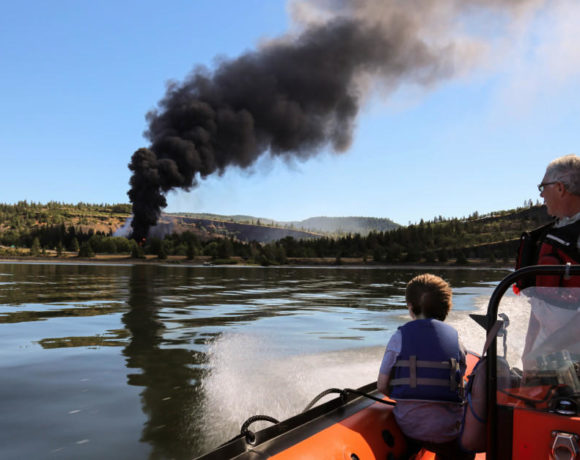
Oil Train Safety Rules Getting Rolled Back By Trump Administration
Listen
The Trump administration is rolling back a requirement for trains carrying highly explosive liquids — like the oil trains that run through the Columbia River Gorge en route to Northwest refineries.
The 2015 rule was supposed to make these hazardous trains more safe, following a number of derailments. But that was under President Obama, Now, President Trump’s Department of Transportation says railroads with trains carrying highly flammable liquids will not have to update their braking systems.
“The costs of this mandate would exceed three-fold the benefits it would produce,” the DOT said in a statement — that’s according to studies by the National Academy of Sciences’ Transportation Research Board and the U.S. Government Accountability Office.
Obama-era regulations required railroad companies to install electronically controlled pneumatic brakes by 2021. Those new systems were supposed to help prevent fiery crashes, like last year’s derailment in Mosier, Oregon. ECP brakes are supposed to brake faster because they signal instantaneously throughout the train.
The current industry-standard air brake technology has been in use for more than a century and had been involved in the deadly Lac Megantic derailmentin 2013.
Oregon Sen. Jeff Merkley criticized the decision.
“Oil trains are rolling explosion hazards, and as we’ve seen all too many times—and all too recently in Mosier—it’s not a question of ‘if’ but ‘when’ oil train derailments will occur. Degrading oil train safety requirements is a huge step backward and one that puts our land, homes, and lives at risk,” Merkley said in a statement.
Industry groups applauded the decision. Chet Thompson, president and CEO of the American Fuel & Petrochemical Manufacturers, called the rollback a “rational decision.”
“While we support the use of improved safety technologies, (electronically controlled pneumatic) isn’t an improvement on other technologies currently in use, and would have imposed substantial costs to shippers,” Thompson said in a news release.
Conservation groups in the Northwest said the rollback was frustrating, but unsurprising. Dan Serres is the conservation director with Columbia Riverkeeper.
“We’re definitely frustrated that the Trump administration is weakening standards that are not strong enough to begin with,” Serres said. “We saw that with the Mosier derailment, potentially if there was a better braking system in place, we wouldn’t have seen so many cars come off the tracks.”
Serres said his group is now more committed to stopping oil terminal construction in the Northwest, if the federal government isn’t “holding the rail industry’s feet to the fire to improve the safety of these shipments.”
Copyright 2017 EarthFix
Related Stories:

Canadian leaders hope trade negotiations won’t derail Columbia River Treaty
A view of the Columbia River in British Columbia. The Columbia River Treaty is on “pause” while the Trump administration considers its policy options. However, recent comments by President Donald

Searching for sage grouse: Looking for a chicken-sized needle in south-central WA
Seth Hulett, Audubon Washington’s senior program manager of the Columbia Plateau, searches through his spotting scope for sage grouse. (Credit: Courtney Flatt / NWPB) Listen (Runtime 4:12) Read In south-central

Landfill neighbors worry about PFAs contamination seeping into drinking water
A view of the landfill from Carole Degrave’s property line. (Credit: Courtney Flatt / NWPB) Listen (Runtime 0:54) Read For years, some people who live near a Central Washington landfill
















